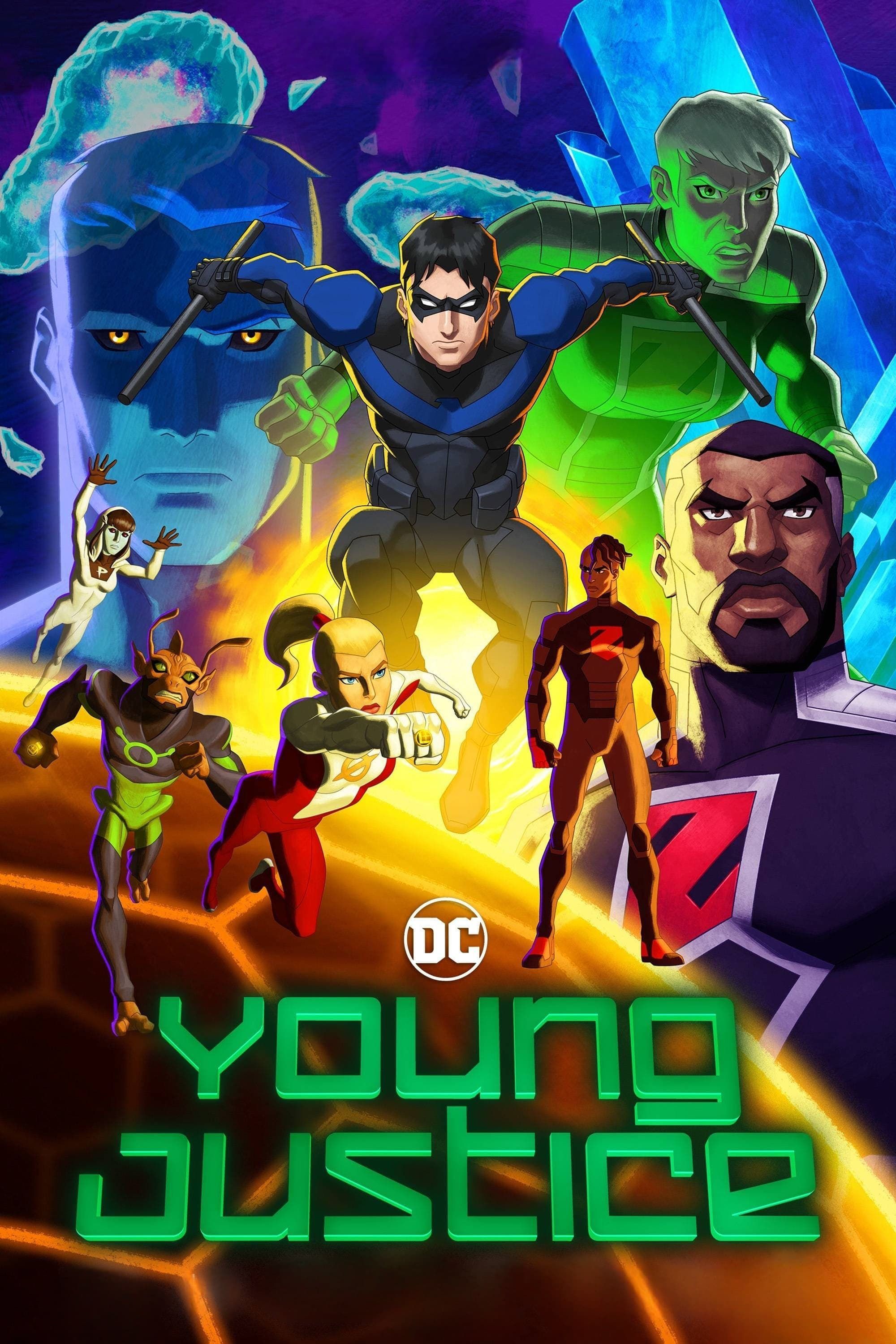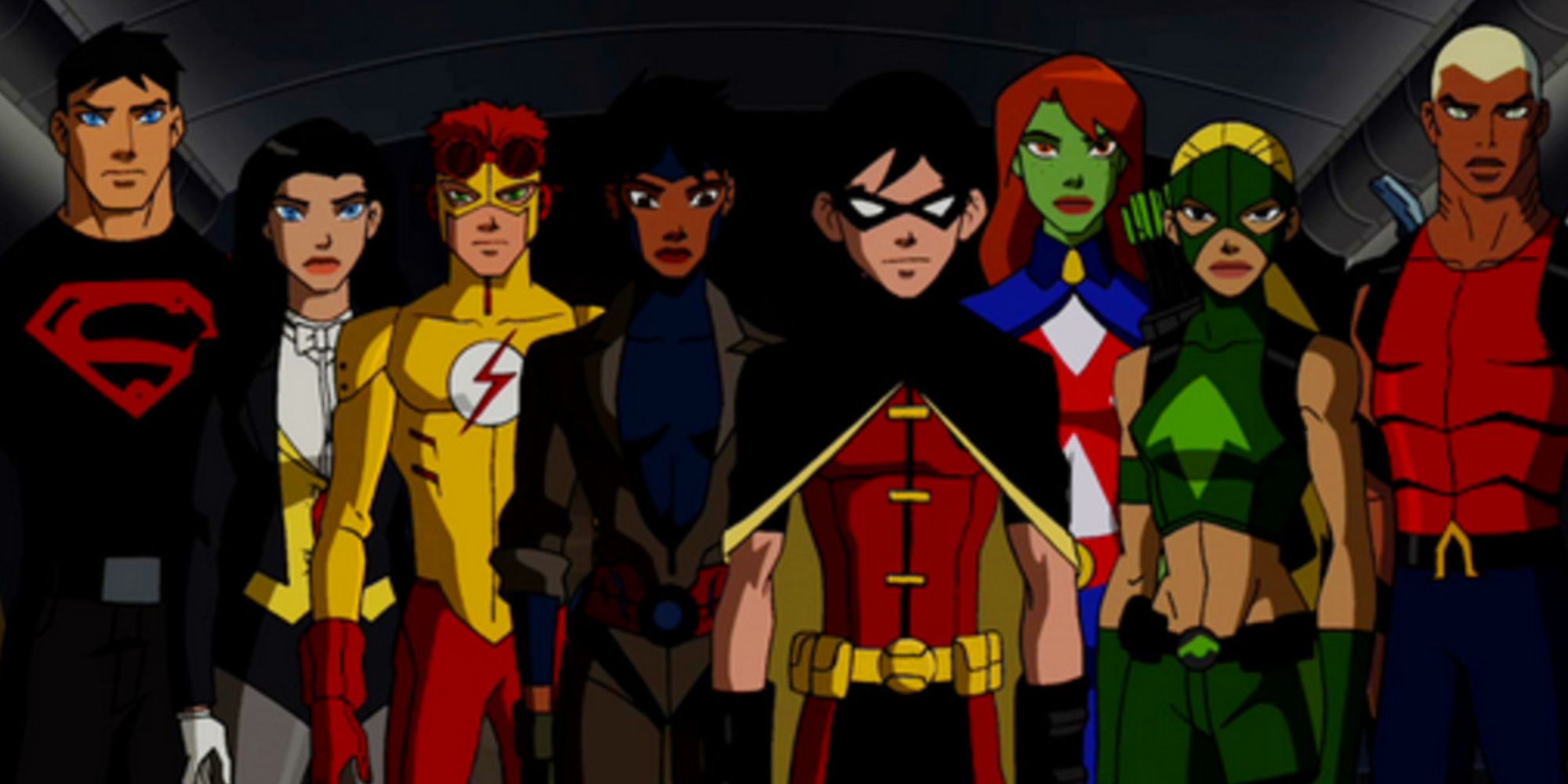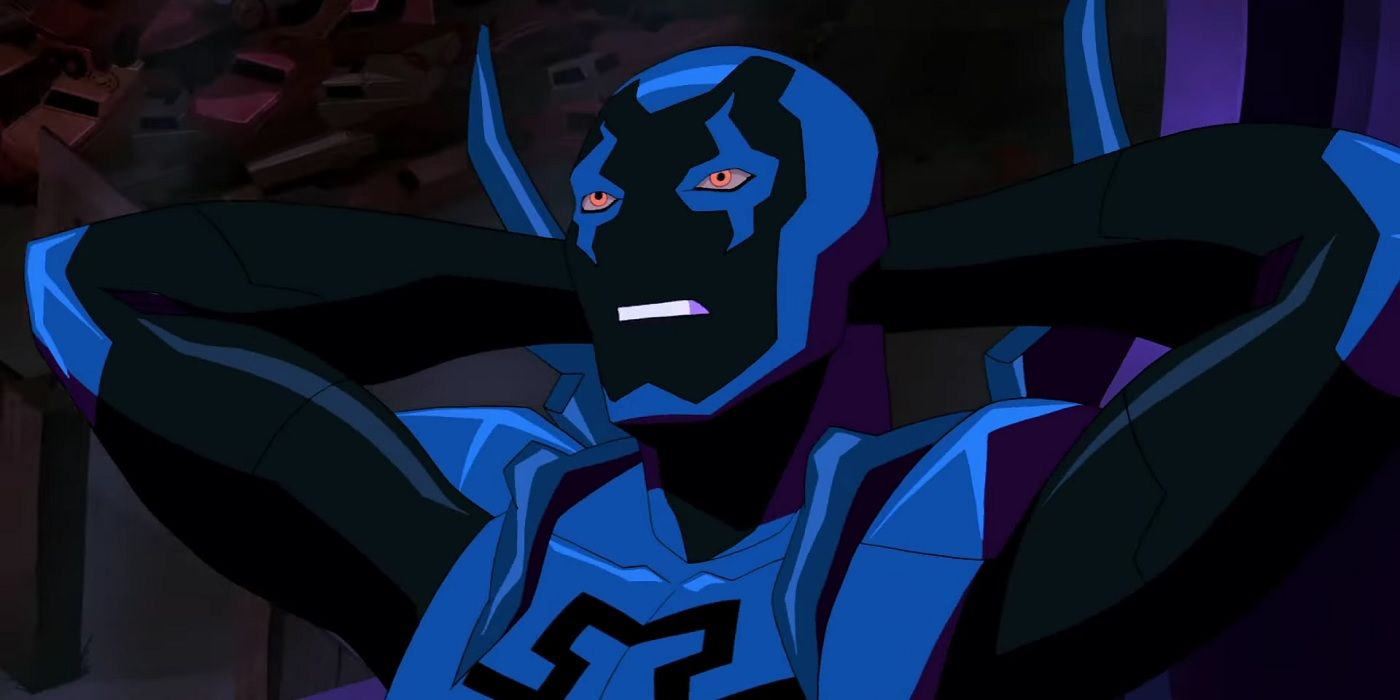There are good animated television shows, there are great animated television shows, and then there’s Young Justice. Quite possibly the finest piece of superhero content on the small screen produced since Batman: The Animated Series, Young Justice follows a group of sidekicks who form The Team, a small group meant to act as a support to the Justice League, away from the government intervention and bureaucracy that often stifles the League. Throughout four seasons, the young heroes evolve into fully grown adults, coming into constant conflict with a group of supervillains known as The Light.
Young Justice is a fascinating study of a show growing and, most importantly, maturing with its audience. It is a fascinating look at the inner conflict and psyche of many DC characters, effortlessly balancing cerebral, large-scale action with emotional stakes and profound empathy for its characters. Young Justice is unlike any other superhero show on television, a true character study that cares about the people behind the mask as much as it does the heroic facade. Each of its four seasons is vastly superior to pretty much every other DC show, but some are undeniably stronger. This list will rank all four seasons of Young Justice based on the quality of its writing, the overarching storyline, the emotional stakes, the cast of characters, and how iconic they are in today’s crowded superhero landscape.

Young Justice
- Release Date
- November 26, 2010
- Cast
- Jesse McCartney , Khary Payton , jason spisak , Nolan North , Danica McKellar , Stephanie Lemelin
- Seasons
- 4
4 Season 4: Phantoms (2021-2022)
The Team versus General Zod
Two years after Season 3, Young Justice returned for a fourth season subtitled Phantoms. Unlike previous seasons, this one featured a novel “arc” approach, with each member of the original Team receiving individual storylines spanning anywhere between four and five episodes. The season starts with Miss Martian (Danica McKellar) and Superboy’s (Nolan North) arc on Mars, which culminates in his apparent death and permeates throughout the season, ultimately leading to a final confrontation against General Zod (Phil Morris).
Young Justice: Phantoms is the most ambitious of the four seasons. The “arc” approach was promising, and it does wonders for several characters: for example, Artemis’ (Stephanie Lemelin) arc, which sees her reconciling with her sister, Jade (Kelly Hu), and helping Cassandra Cain deal with her past, is perhaps the greatest and most emotionally resonant writing in the show’s history. However, the second part, which deals with Kaldur (Khary Payton), Rocket (Denise Boutte), and Nightwing (Jesse McCartney), is considerably weaker. Nightwing, especially, gets the short end of the stick, not even receiving an individual arc; instead, his episodes are used to wrap up Conner’s story in the Phantom Zone. Phantoms tries something different, and that’s certainly appreciated; however, it can quite stick the landing. The individual stories are good for the most part, but the season really struggles when it comes to tying the larger mystery of Conner in the Phantom Zone. Thus, Phantoms is the weakest of the four Young Justice seasons, marked by spectacular highs and some questionable lows.
3 Season 1: The Beginning (2010-2012)
The Team versus The Light
Season 1 of Young Justice is a masterclass of storytelling. The show introduces its main characters — mainly sidekicks living in the shadow of older, more experienced and established heroes — who are desperate to make a name for themselves. They get their chance when they form The Team, a small covert group meant to be used in missions where the Justice League’s involvement wouldn’t be advised. The season tells a classic coming-of-age story, as each hero goes on a path of self-discovery, coming to terms with their heroic identities while dealing with classic adolescence issues like falling in love and wanting to grow up too fast.
Young Justice‘s debut season is a breath of fresh air, a truly unique and daring take on some of the DC Universe’s best-known heroes. It stands out because of its intricate narrative and poignant, emotional storytelling driven by the inner turmoil of the main characters. Episodes like “Failsafe,” “Disordered,” and “Performance” do a spectacular job exploring the complex emotional state of the characters, dealing with themes of trauma, mental health, frustration, angst, and fear in a remarkably honest and straightforward way that very few animated shows dare to try. Season 1 sees Young Justice finding its footing, introducing characters, setting long-term plotlines that would carry all the way to Phantoms, and establishing its now-well-known storytelling structure, where multiple characters play crucial roles despite not necessarily being main players. It is consistent and endlessly quotable, even if it never quite reaches the peaks of its follow-up.
2 Season 3: Outsiders (2019)
The Team versus Granny Goodness and Apokolips
Young Justice: Outsiders is the most divisive entry in the series, and its placement as a runner-up for the best season will no doubt rub some fans the wrong way. However, it is here that Young Justice cements its place as a true modern DC classic. Following the show’s cancelation in 2013, fans campaigned hard for years until they finally got a third season, subtitled Outsiders, which premiered six years after the second installment. It’s divided into two parts: the first sees Nightwing conducting a secret mission in Markovia, where the succession crisis is worsened by the outing of Prince Brion (Troy Baker) as a metahuman. Joined by a new group of inexperienced heroes, Nightwing forms another smaller team to track Brion’s long-lost sister, Tara (Tara Strong), and deal with the current metahuman trafficking crisis. Part 2 follows the Outsiders, led by Beast Boy (Greg Cipes), as they discover a rising threat in the form of Granny Goodness (Deborah Strang), who is serving Apokolips.
Juggling a lot of storylines at once, Young Justice: Outsiders is a classic case of the reach exceeding the grasp. And yet, part one is so thrilling and engaging that it’s hard to fault the show for trying. The dynamic between Nightwing, Superboy, and Tigress with the new heroes is both endearing and effortless, echoing the early days of Season 1 but with a much more confident approach. The metahuman trafficking story is also fascinating, mirroring sensitive real-life issues without feeling like shameless pandering. The new characters, especially Black Lightning (Khary Payton) and Forager (Jason Spisak), are great fits for the show and seamlessly blend into the action, and the focus on Vandal Savage (Miguel Ferrer) leads to arguably the best episode in the series, “Evolution.”
Yes, it all goes downhill in part two, which feels aimless and rushed, leading to a confrontation that never quite makes sense. However, Outsiders has some of the show’s best moments and episodes that feel like the epitome of Young Justice — from Nightwing’s fever dream in “Terminus” and his partnership with the Harpers (Crispin Freeman) in “Private Security” to The Team fighting Lobo (David Sobolov) while Ocean Master attempts to kill the League’s families during a baby shower. With extremely high highs and rather low lows, Outsiders is the season that best represents Young Justice‘s identity.
1 Season 2: Invasion (2012-2013)
The Team versus The Reach
Invasion is the peak of Young Justice and undeniably the best season in the series. Set five years after the Season 1 finale, Invasion follows a sprawling cast of characters as they attempt to stop an attack from an alien species known as The Reach. With the Justice League away on an intergalactic trial, The Team, led by Nightwing, is left to handle things on Earth. Kaldur has seemingly betrayed them and joined his father, Black Manta (Khary Payton); Miss Martian and Conner have broken up, and the new generation of heroes, including Blue Beetle (Eric Lopez), are doing their best to find their place as heroes in a world that becomes increasingly unhinged.
Young Justice: Invasion
has everything: relationship drama, lies, deceit, elaborate plans, tragedy, out-of-nowhere twists, and thrilling action sequences that far surpass anything in Season 1.
Following the growing pains of Season 1, Invasion is where Young Justice truly finds its footing. It balances an extremely large ensemble cast and makes it look easy, giving everyone a chance under the spotlight and offering a high-stakes story that feels urgent without ever losing momentum. Borrowing from the best alien invasion movies and shows, Young Justice: Invasion is a delight from start to finish, keeping the characters fans fell in love with in Season 1 but expanding the world and making it feel lived-in and immersive. The season has everything: relationship drama, lies, deceit, elaborate plans, tragedy, out-of-nowhere twists, and thrilling action sequences that far surpass anything in Season 1. It also features the devastating death of Wally West (Jason Spisak), which remains the single most heartbreaking moment in the show. Young Justice: Invasion is the show at its best and most ambitious; it’s complex without being convoluted and emotional without being manipulative, a masterpiece of plot-driven storytelling that is as enjoyable today as it was a decade ago.
Source link



